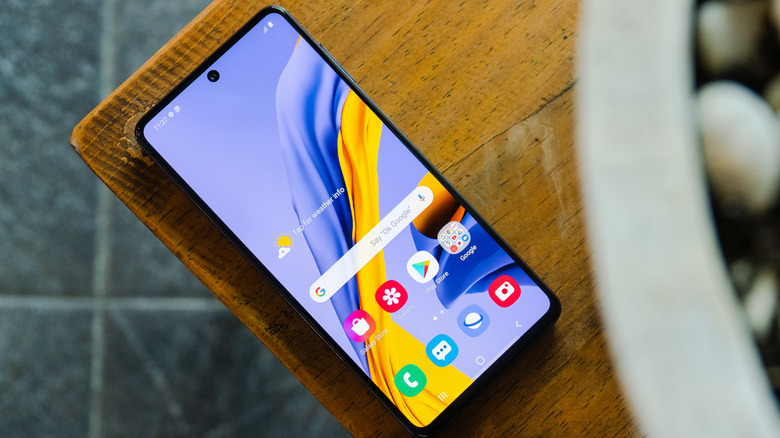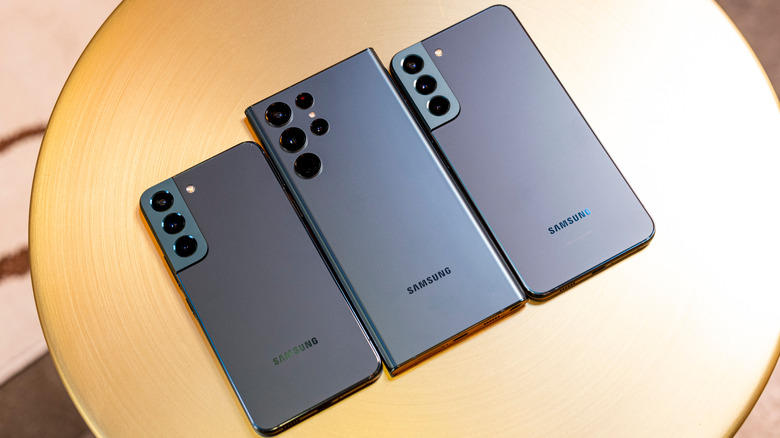Why Samsung Is Being Sued Over A Fundamental Android Feature
Samsung is at the heart of a patent-related legal fiasco that covers an Android OS technology capable of predicting how long the battery will last before a device turns off. Filed by a patent licensing company named K. Mizra LLC, the legal argument submitted before the Dusseldorf Regional Court claims that Samsung infringed on a patent covering battery runtime prediction on its phones running a younger version of Android.
The tech, which was originally patented by a Dutch research institute named Nederlandse Organisatie voor Toegepast Natuurwetenschappelijk Onderzoe (TNO), covers what the legal complaint describes as an "on-the-fly prediction of the remaining battery life of a mobile device." The algorithm-driven system analyses usage patterns and accordingly tells the user how long their phone will last based on the current battery level. The lawsuit alleges that some Samsung products running "a younger version of the Android OS" infringe on the patent by using the technology to predict battery life.
Of course, it's not just Samsung phones that offer this battery prediction feature. Even Google's Pixel series phones and those made by OEMs such as Xiaomi also provide the same functionality, which makes one wonder why only Samsung has been singled out in the patent-related lawsuit.
Even Samsung's rivals are at risk
The patent describes a battery-powered mobile terminal that is used for a wide range of activities where the energy consumption associated with each activity is recorded to calculate the rate of power consumption. The raw rate of energy uptake is compared against the available battery juice to offer a rough estimate of how long any given mobile device will last based on the current smartphone activity pattern. Interestingly, the patent's priority date is listed as 2007, it was officially granted in 2013, and is expected to expire in 2028. Also worth noting here is the fact that the first version of Android as a beta build was released in November 2007, followed by the software development kit's release a week later.
For the unaware, an SDK forms the underlying framework for creating a mobile app. Given the widespread usage of Android's battery longevity system across a wide range of phones from different brands, it would be interesting to see if K. Mizra eventually targets other brands apart from Samsung. Despite their deep pockets and influence, tech giants are not bullet-proof when it comes to patent-related legal tussles.
Google lost a key patent battle against Sonos a few months ago and eventually had to deprecate the smart speaker experience for users. Apple also lost patent battles against Optis and had to pay millions in damages (via Reuters). The latest one against Samsung could have huge repercussions, not just because Samsung is among the world's largest smartphone makers, but also due to the fact that the contentious patented tech may be used by other Android smartphone makers, as well.

